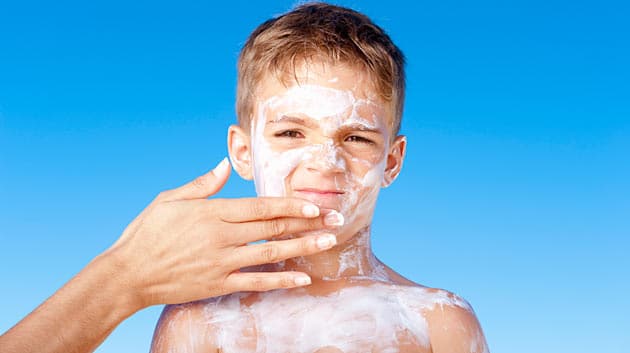
While it’s something you almost certainly never thought of before (we sure didn’t), chemicals found in products like sunscreen lotion and hand sanitiser can react with the materials used in your car’s interior and exterior, causing them to wear prematurely…
While it’s something you almost possibly never thought of before, chemicals found in products like sunscreen lotion and hand sanitiser can react with the materials used in your car’s interior, causing them to wear prematurely unless they are protected by special finishes.
According to Ford this is a challenge its engineers deal with daily, continually testing new products on the materials that are used in its vehicles and supporting the development of resistant coatings.
“From hand sanitisers to sun lotions to insect repellent, consumer trends are constantly changing, and new products are coming on to the market all the time,” said Mark Montgomery, senior materials engineer at Ford’s Materials Technology Centre in the UK.
“Even the most innocuous seeming product can cause problems when they come into contact with surfaces hundreds and even thousands of times a year.”
And, according to Ford, it is only going to get worse for your steering wheel – the market for hand sanitiser, including gel, foam and wipes, many of which contain ethanol, is expected to rise by 60 per cent by 2024, while higher sun protection factor (SPF) sunscreen lotions contain greater quantities of titanium oxide that can react with plastics and natural oils that are found in leather, especially when it is hot.
Diethyltoluamide (or DEET), the most common active ingredient in insect repellents, is also a problem for your car’s interior materials, making summer a particularly hard time for car interiors.
The Ford teams in the UK and Cologne, Germany, test at temperatures of up 74°C – the temperature the inside of a car parked at the beach on a hot day might reach – and simulate extended exposure to the sun, with samples bombarded with ultra‑violet light, equivalent to the brightest place on earth, for up to 48 days at a time.
They also test plastics for strength at temperatures as low as -30°C when they become most brittle, repeatedly bouncing a rubber ball – that is ten times heavier than a regulation football – to ensure the plastic doesn’t crack.
Ford says that, based on the findings, the chemical constitution of protective coatings used can then be reformulated so that interiors are protected.
“Sometimes what we do requires a bit of detective work,” said Richard Kyle, materials engineer, also based in the UK.
“There were instances of particularly high wear in Turkey and we managed to trace it back to ethanol potentially being a contributing factor, and most likely a popular hand sanitiser that contained 80 per cent ethanol – far higher than anything we’d seen before. Once we knew what it was, we were able to do something about it.”

Kelvin Armstrong Auto Repairs (KAAR) is recognised as the most competent, capable, and reliable automotive repairer west of the Auckland City isthmus.
With fully equipped, state of art facilities in both Avondale and Henderson, KAAR gives a choice of two handy locations for full automotive, mechanical, electrical repairs and servicing for all vehicles, including European makes and models like Audi, VW and BMW.
We cater for all makes and models of cars, vans, 4x4s and light trucks. We service petrol, diesel and hybrid motors.
